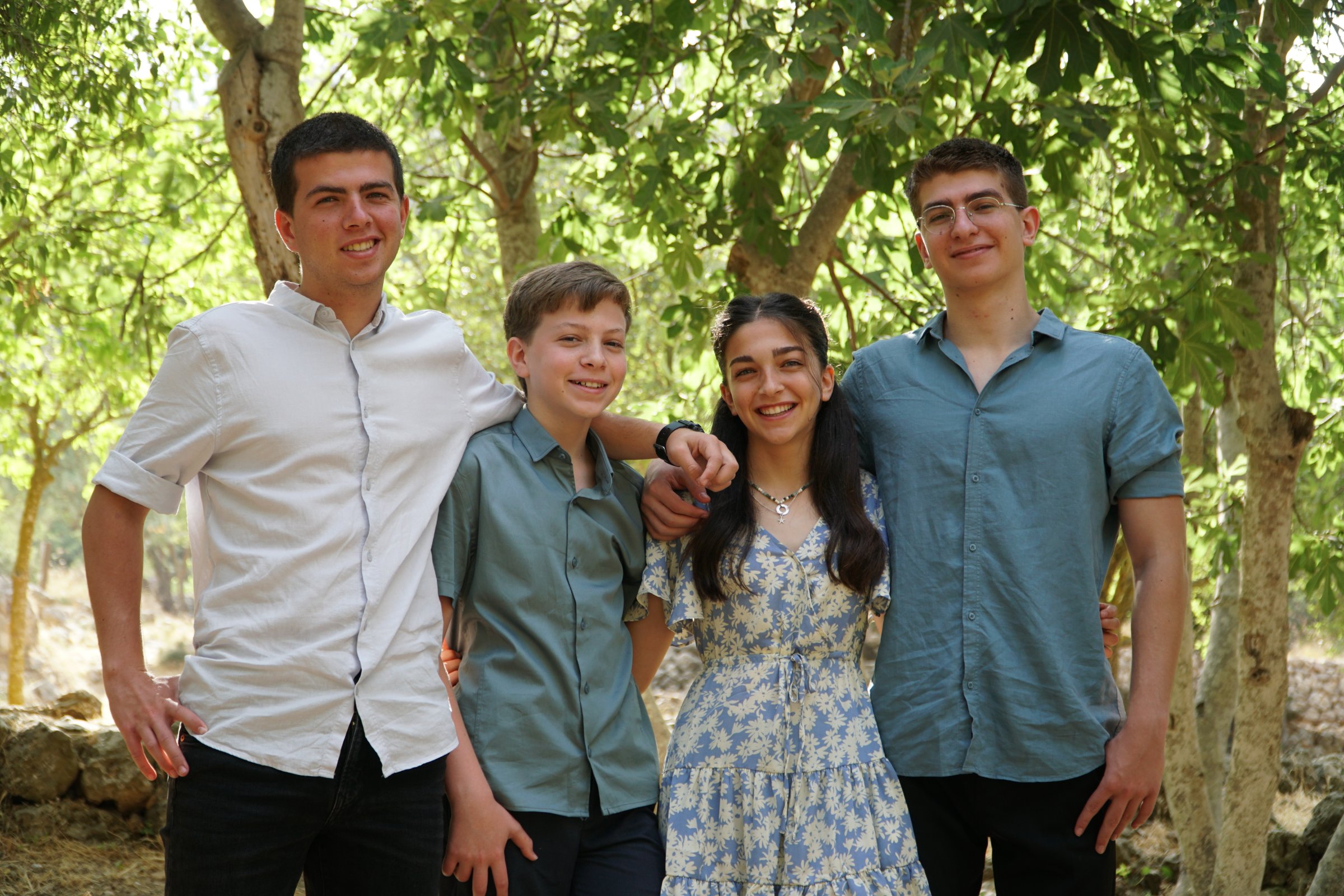
Elana Kaminka is an Israeli involved in multiple grassroots peace initiatives. She is a member of the secretariat of Tag Me'ir, an organization that supports individuals and families who are victims of racist violence, and volunteers as a driver for an organization called Humans Without Borders, which provides transportation to Israeli hospitals for Palestinian children with illnesses.
Kaminka is also a mother. Her son, Yannai Kaminka, was killed in battle by Hamas operatives on Oct. 7. He would have turned 21 on Oct. 30. In an interview with TIME's Anna Gordon, the Israeli peace activist talks about her son, the battle that took his life, and her hopes for what comes next.
I lost my firstborn son. When something like that happens, you realize nothing else is important.
My son’s name was Yannai Kaminka. Yannai grew up in a home where he would come downstairs and find Palestinian friends sitting on the couch. When he was doing his civilian national service, he brought one of my Palestinian friends to speak to the group because he knew that everyone there was going to the army soon and it was so important for him that they also understand other perspectives. Our ethos, which was definitely Yannai’s ethos as well, was to see the humanity and the person sitting in front of you and to take the time to get to know them as a person and to understand their pain.
On Oct. 7, he was serving as a platoon commander for basic trainees. His trainees had just been drafted in August so they were really new recruits. Oct. 7 was a Jewish holiday, and so they were the one company that had stayed on the base to guard, and everyone else had gone home.
Read More: The Families of Israelis Held Hostage by Hamas Speak Out.
At 6:30 in the morning, his base came under massive artillery fire. There were trainees at the guard posts around the perimeter of the base. Yannai and the other officers and sergeants came together and made the decision that their trainees didn't have the capacity to handle a situation like this, because they'd been in the army for less than two months. So they took it upon themselves. They ran out and took over all the perimeter guard posts and sent the trainees back into the bomb shelters.
There were also civilians in the base, because a family with many young children had come to spend the holiday with the soldiers there. So there were about 30 civilians taking cover in the base, plus 90 trainees and they were all in the bomb shelters. If one of the Hamas terrorists had been able to penetrate the perimeter, those people would have been slaughtered.
Read More: A Family’s ‘Terrible Hope’ for a Peace Activist Taken Hostage.
You hear so many stories of the officers who stay behind in the comfortable office and send their grunts to war. Yannai and the other officers did the opposite. Yannai always felt kind of like a parent for his soldiers. He would do home visits to find out what was going on with them. Just like I would put my life on the line to protect him, he and the other officers and sergeants put their life on the line to protect their soldiers.
They went to all the perimeter posts and came under massive attack by approximately 50 Hamas people. There was a kibbutz right behind the base. They knew that if those people got through the kibbutz was in danger. They were the last line preventing a massacre from happening, and they fought to their death. My son Yannai was killed together at the post with another officer and two sergeants. On the other side of the base, two other officers were killed.
Read More: For Gazans, There Are No Safe Havens.
The officers, three male and three female–these were also extraordinarily brave female soldiers as well–they fought so hard that only one Hamas person was able to get into the base after my son was killed. He was able to kill one trainee before other trainees jumped on him. And they were able to save the lives of the 90-something trainees, plus 30 civilians who are in the base, as well as the whole kibbutz. In the kibbutz behind them, there are no casualties—unlike all the other kibbutzim in the area.
Compassion and humanity is the only way. Somebody said to me, how can you have compassion for Palestinian civilians after what they did? And I said, because, among other things, I want my other three children to grow up in a better world, and it's just a cycle of violence. I do this work for me too. It’s for my children. I want them to grow up in a better place and I believe that's the only way to make that happen.
—As told to Anna Gordon
More Must-Reads from TIME
- Breaking Down the 2024 Election Calendar
- How Nayib Bukele’s ‘Iron Fist’ Has Transformed El Salvador
- What if Ultra-Processed Foods Aren’t as Bad as You Think?
- How Ukraine Beat Russia in the Battle of the Black Sea
- Long COVID Looks Different in Kids
- How Project 2025 Would Jeopardize Americans’ Health
- What a $129 Frying Pan Says About America’s Eating Habits
- The 32 Most Anticipated Books of Fall 2024
Contact us at letters@time.com